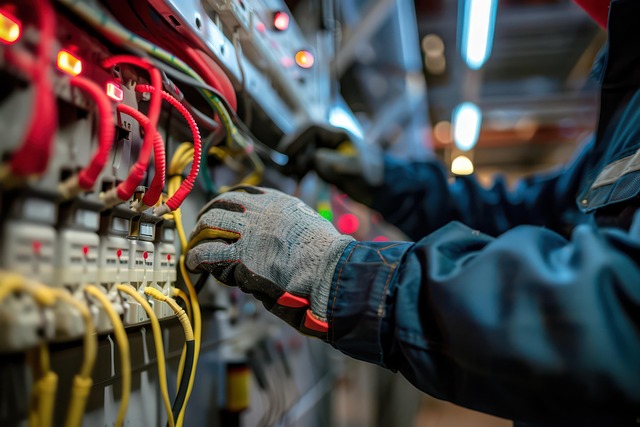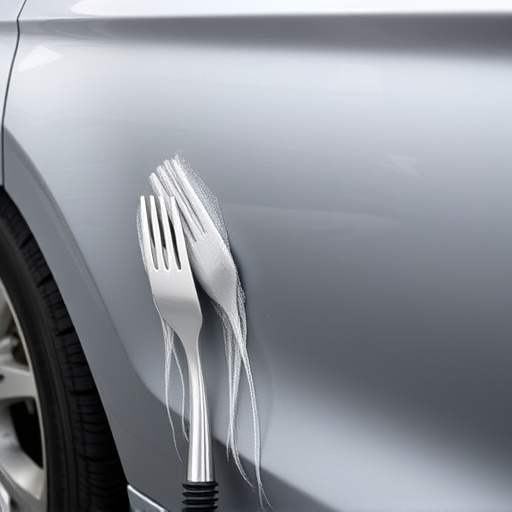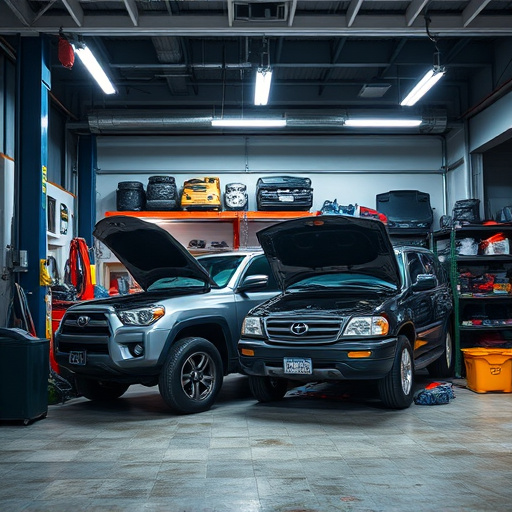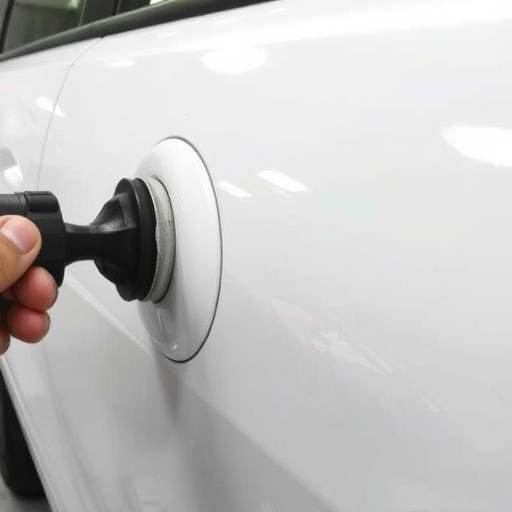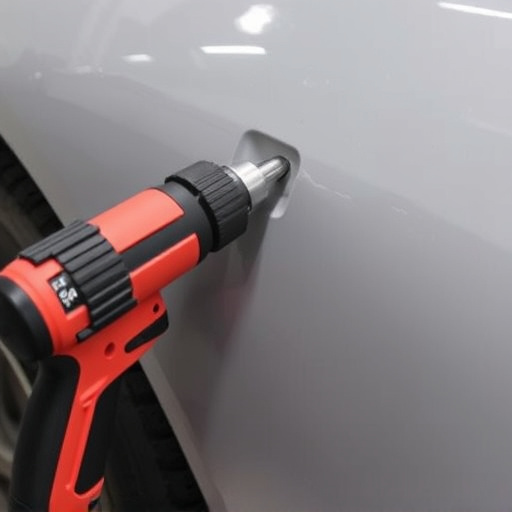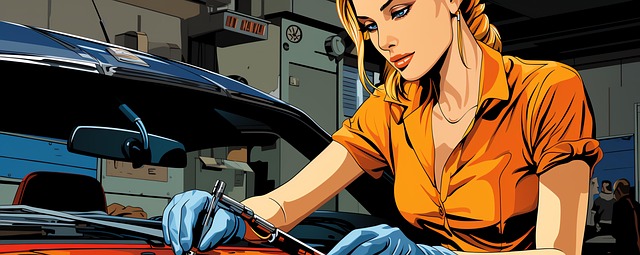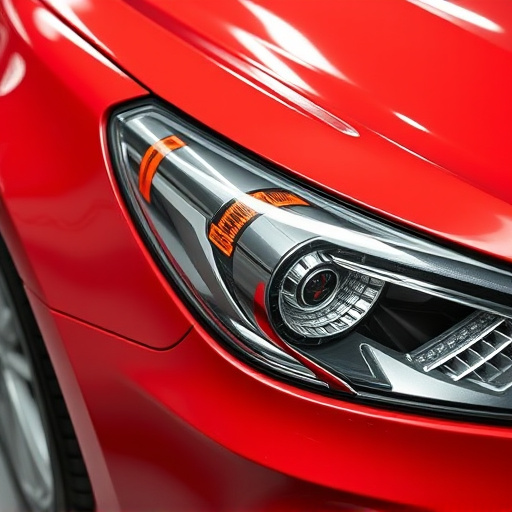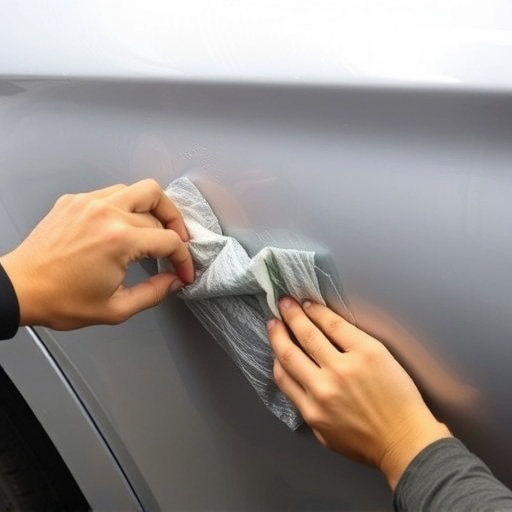Full-service collision repair offers a holistic approach to restoring vehicles post-accident, involving detailed inspections, diverse bodywork repairs, and meticulous finishing. The process begins with a thorough assessment of damage followed by skilled technicians addressing structural repairs, panel replacement, and intricate detailing. Post-repair inspections using advanced diagnostic tools verify structural integrity, paint quality, and panel fit against original specifications, ensuring each restored vehicle meets high safety and aesthetic standards. This meticulous process enhances quality control, customer satisfaction, and repair shop reputation in a competitive market.
In today’s digital era, a seamless and comprehensive collision repair process is paramount for customer satisfaction. Full-service collision repair goes beyond fixing physical damage; it encompasses a holistic approach that includes meticulous post-repair inspections. This article delves into the intricacies of full-service collision repair, highlighting the crucial role of post-repair inspections in ensuring quality, safety, and customer trust. By understanding these key aspects, you’ll appreciate why this process is transforming the automotive industry.
- Understanding Full-Service Collision Repair
- The Role of Post-Repair Inspections
- Benefits of Incorporating Post-Repair Inspections in Collision Repair Process
Understanding Full-Service Collision Repair
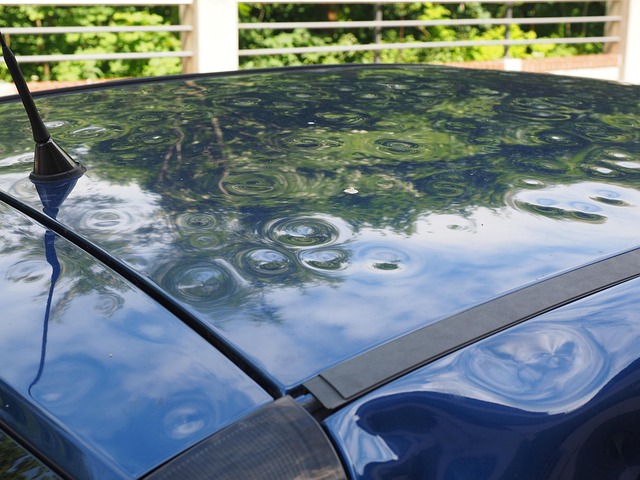
Full-service collision repair encompasses a comprehensive range of auto body services designed to restore your vehicle to its pre-accident condition. This goes beyond simply fixing dents or painting over damage; it includes detailed inspections, intricate bodywork repairs, and meticulous finishing. Think of it as a complete overhaul aimed at not just repairing but revitalizing your car.
The process typically starts with an thorough assessment to identify all damage. Next, experienced technicians address each issue, from structural repairs to panel replacement and intricate detailing. This holistic approach ensures that every aspect of your vehicle’s auto body is in optimal condition. Post-repair inspections further guarantee the quality of work, confirming that all repairs meet industry standards and your expectations.
The Role of Post-Repair Inspections
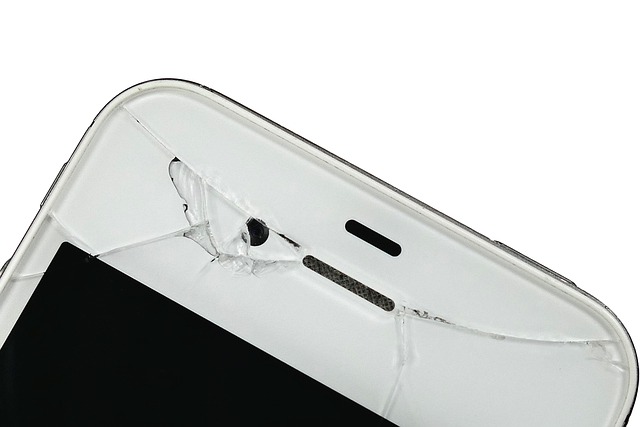
Post-repair inspections play a pivotal role in the process of full-service collision repair. Following the completion of repairs on a vehicle, skilled technicians conduct meticulous assessments to ensure every aspect of the restoration meets the highest standards. These inspections go beyond visual checks, involving advanced diagnostic tools to verify structural integrity and proper functioning of all systems. This thorough evaluation guarantees that the vehicle is not only aesthetically restored but also safe for the road.
For auto frame repair and auto dent repair, post-repair inspections are particularly crucial. Technicians scrutinize alignment, paint quality, and panel fit, ensuring every detail aligns with original specifications. In a vehicle body shop, this process helps identify any lingering issues that may have been overlooked during the repair process, allowing for immediate correction. Ultimately, these inspections contribute to customer satisfaction, providing peace of mind that their vehicles are in prime condition after undergoing full-service collision repair.
Benefits of Incorporating Post-Repair Inspections in Collision Repair Process

Incorporating post-repair inspections into a full-service collision repair process offers numerous advantages for both repair shops and customers. These checks ensure that every detail, from structural integrity to meticulous car paint repair, is up to par. By implementing this step, repair facilities can guarantee customer satisfaction and maintain their reputation for high-quality work. This is especially crucial in the competitive market of vehicle repair, where a single oversight could lead to losing a client to a rival shop.
Post-repair inspections also serve as a quality control measure, identifying any potential issues that may have been missed during the repair process. This includes verifying the accuracy of car scratch repairs and ensuring the paint job is flawless. By catching these problems early, shops can avoid costly re-repairs and unhappy customers, thereby streamlining their operations and fostering long-term client relationships.
Full-service collision repair, encompassing comprehensive services from initial assessment to final handover, sets a new standard in vehicle restoration. Integrating post-repair inspections as a vital component ensures not only the structural integrity of the vehicle but also provides peace of mind for customers. These meticulous checks guarantee that every detail is addressed, enhancing the overall quality and reliability of the repair process. By adopting this approach, collision centers can foster customer satisfaction and build trust, solidifying their reputation in the competitive automotive industry.
